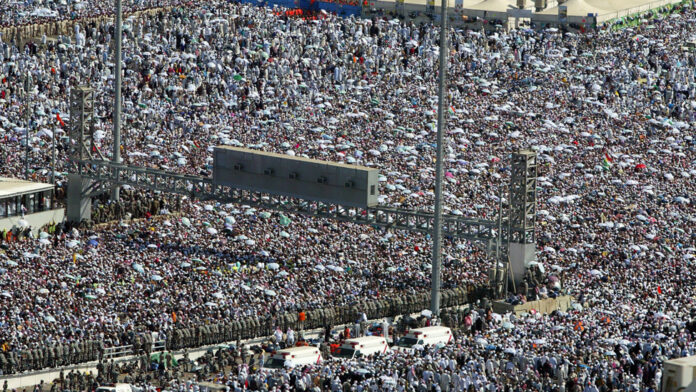Saudi Arabia disclosed on Sunday that more than 1,300 pilgrims lost their lives during this year’s hajj pilgrimage, largely due to intense heat and the majority of them lacking official permits. According to the Saudi Press Agency (SPA), “Regrettably, the number of mortalities reached 1,301, with 83 percent being unauthorized to perform hajj and having walked long distances under direct sunlight, without adequate shelter or comfort.”
This figure surpassed an earlier estimate by AFP, which had reported over 1,100 deaths based on official statements and reports from diplomatic sources.
Also Read: Also Read: Heat Wave Engulfs US East Coast, Spreads Dangerously Westward
The deceased pilgrims hailed from over 10 countries spanning the globe, including the United States and Indonesia. Among these, Egyptians accounted for a significant portion, with 658 deaths reported, 630 of whom were unregistered pilgrims.
Heat-related causes were cited as the primary reason for the fatalities, exacerbated by temperatures in Mecca reaching as high as 51.8 degrees Celsius (125 degrees Fahrenheit), as confirmed by Saudi Arabia’s national meteorological center.
While Riyadh had not previously disclosed its own death toll, a senior Saudi official had earlier mentioned 577 deaths occurring on the busiest days of hajj, June 15 and June 16, when pilgrims faced extreme conditions during rituals such as prayers on Mount Arafat and the “stoning of the devil” in Mina.
In response to criticisms, Saudi Health Minister Fahd Al-Jalajel defended the management of this year’s hajj as “successful,” highlighting that the health system provided extensive specialized treatment services, including to those without official authorization.
Despite the challenges, Saudi Arabia reaffirmed that 1.8 million pilgrims participated this year, similar to previous years, with 1.6 million arriving from abroad. The timing of the hajj, which coincides with the Saudi summer, poses significant health risks to participants, a concern likely to intensify with climate change in the coming decades.
Hajj permits are allocated through a quota system to countries and then distributed to individuals via lottery, emphasizing the logistical complexity and challenges involved in managing one of Islam’s fundamental rituals.



